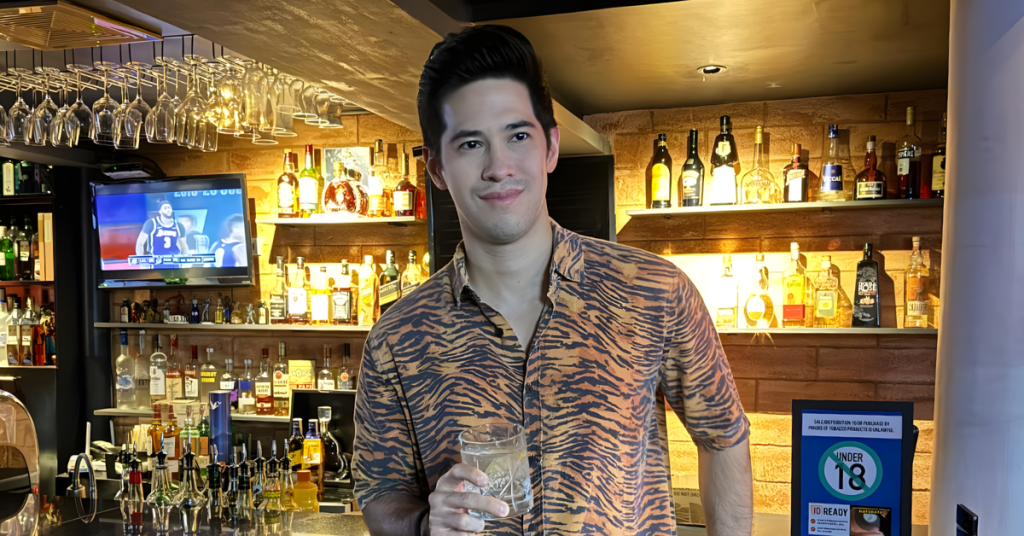In the restaurant industry, survival is never guaranteed. Tastes shift, new competitors arrive, and trends can fade overnight. For chef and actor Jose Sarasola, who has managed his restaurant for more than 15 years, the key to staying alive has been simple: reinvention.
When Sarasola first opened Avenue 75 in Parañaque back in 2010, it was a sports bar—a graduation gift from his parents after finishing culinary school. The concept was built around fun nights out with friends, big screens showing basketball games, and comfort food paired with drinks. For years, Avenue 75 thrived as a neighborhood hangout. But Sarasola knew that nothing in the food business stays the same forever.
Over time, customer habits began to shift. The sports bar crowd became less consistent, and younger diners looked for a different kind of experience—something more relaxed, more food-focused, and better suited for casual dining with family. Sarasola saw the signs and made a decision: it was time to reimagine what Avenue 75 could be.
From Sports Bar to Bistro
Today, Avenue 75 is evolving into Bistro 75, a concept that better reflects the market’s appetite. The transition isn’t just cosmetic. It represents a full reinvention of the restaurant’s identity—from the kind of dishes on the menu, to the vibe of the interiors, to how the brand positions itself to customers.
For Sarasola, this shift is more than a rebrand. It’s a survival strategy. “You can’t expect one idea to last forever,” he explained in an interview with Financial Adviser PH. “People change, and if you don’t change with them, you’ll be left behind.”
Reinvention allows businesses to keep pace with their customers rather than fall into irrelevance. In Sarasola’s case, Bistro 75 now attracts a wider demographic—families, professionals, and groups looking for a reliable place to eat rather than just a bar to drink.
The Risk of Staying the Same
Sarasola’s move underscores a truth many entrepreneurs resist: businesses that don’t evolve risk dying out. In the restaurant scene, this is especially true.
Sports bars may have been popular in the early 2010s, but consumer behavior has shifted. Diners are more selective, more health-conscious, and more experience-driven. A bar that once thrived on large crowds and game nights might struggle today against cafes, casual dining chains, and delivery-first concepts.
By refusing to stick to the old formula, Sarasola avoided a slow decline. Reinvention, even when risky, became his way of ensuring the restaurant stayed relevant beyond its original era.
Reinvention as a Financial Strategy
Reinvention isn’t just about branding—it’s also about numbers. A restaurant that adapts to customer needs can protect its margins, sustain revenues, and justify continued investment.
For Sarasola, Bistro 75’s evolution reflects a bigger principle: reinvention is a form of financial planning. Instead of waiting for revenues to shrink and then reacting in desperation, he anticipated change early enough to reposition the business. That foresight gives the restaurant a fighting chance to last another decade.
Lessons Beyond the Kitchen
Sarasola’s story offers a lesson for entrepreneurs across industries: the market never stands still. What worked 10 years ago may not work today. Reinvention is not a one-time decision but a constant process of evaluating where your customers are headed and meeting them there.
This mindset is especially relevant in today’s fast-changing economy. Consumer expectations evolve with technology, culture, and lifestyle shifts. Businesses that cling to the past risk being forgotten, while those willing to experiment and evolve earn longevity.
A Restaurant Built to Last
For Jose Sarasola, reinvention is why Avenue 75 has survived where many others have closed. By transforming it into Bistro 75, he demonstrates that staying relevant requires courage, foresight, and the willingness to let go of what once worked.
Fifteen years in, Sarasola knows the journey isn’t over. But if his story proves anything, it’s that reinvention—while risky—is often the only way to keep a restaurant alive.
![]()



